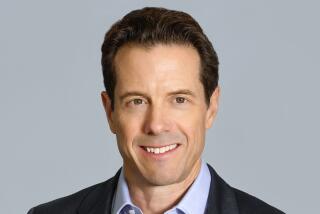Apple Unveils Major Reorganization; Jobs Gives Up a Key Post
- Share via
Steven Jobs, the eccentric chairman and co-founder of Apple Computer, surrendered his key operational role in the Silicon Valley company that he took from a backyard garage operation to a $2 billion-a-year technology giant in a top-level reorganization announced by the company Friday.
Jobs, who remains chairman of Cupertino-based Apple, gave up management of the Macintosh division. In a statement attributed to Apple President and Chief Executive John Sculley, Jobs’ new role will be “creator of powerful ideas and the champion of Apple’s spirit.”
“Steve will have a much more global role,” added Del Yocam, newly named executive vice president of product operations. He said Jobs will contribute to long-range product innovation and “continue to lead Apple and the industry.”
The long-rumored Apple reorganization features a merger of the company’s two product divisions--Macintosh and Apple II. Analysts described the move as a way to halt the widening of what they called a damaging competitive rift between the divisions. The competition had been blamed for a small exodus of Apple executives in recent months.
Response to Slump
The company, however, said the reorganization was a response to an industrywide slump and plummeting earnings. Apple spokesmen said centralized marketing and manufacturing will be more efficient, eliminate overlapping functions and enable Apple to focus more effectively on its strongest markets, education and small- and medium-sized business.
Emerging as the top executives under Sculley are Apple veterans Yocam, formerly head of the Apple II division, and Bill Campbell, named as group executive for U.S. sales and marketing.
Yocam said Jobs, 30, who helped start the company in a garage eight years ago, was part of the sometimes “passionate” internal debate over the realignment of the company. He said executives were still fiddling with details until late this week, and Jobs attended a 9 a.m. meeting of managers Friday at which Sculley announced the reorganization. Jobs was unavailable for comment and was said to have left for France on a combination of company business and vacation.
“I think this was very difficult for Steve,” Yocam said in a phone interview. “I don’t want to suggest that it wasn’t. But Steve was right there this morning when John met with middle management. I saw Steve being very supportive.”
Common Problem
The diminution of Jobs’ role, and the February departure of co-founder Steven Wozniak, repeats the story played out at many companies begun by entrepreneurs. Rapid growth demands a corporate approach that isn’t necessarily suited to product and marketing whizzes such as Wozniak and Jobs.
Jobs recognized this when he brought Sculley to the company from a top post at Pepsico Inc. in early 1983, and analysts said the reorganization is a logical outgrowth. “Sculley is stepping in and making it a big corporation,” said Michael Murphy, editor of California Technology Stock Letter. “That’s what they’re paying him a million bucks for.”
But the change at Apple is ironic because of the company’s determinedly anti-corporate, irreverent culture, its eagerness to develop radically new products and its unconventional approach to advertising.
Jobs still owns 11.3% of the company’s stock and retains an intensely loyal following among many employees. As a result, Apple watchers expect him to remain an important force at the company.
Real Trade-Off
“It’s very important that Apple not lose Jobs’ immense ambition. He has a remarkable capacity for whipping up enthusiasm,” said Michael Moritz, author of “The Little Kingdom,” a book on the Apple phenomenon. “But they can probably live without his temperamental nature. It’s a real trade-off.”
Moritz said Jobs deserves little if any blame for what he called Apple’s misreading of the computer industry slump and the company’s own financial circumstances in recent months.
After putting on a happy public face all spring, the company last week confirmed Wall Street’s skepticism by acknowledging that sales and earnings in the current quarter would fall below second-quarter results.






